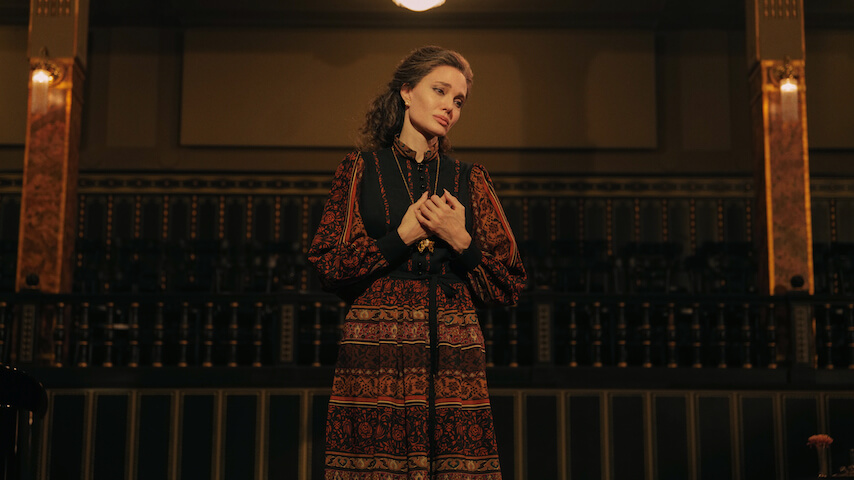Jolie, who was previously not a trained singer, was “terrified” when going into production for the Netflix film, as she told Cynthia Erivo during their recent conversation for Variety‘s Actors on Actors series. But while she said she had “so much respect” for Erivo, for whom singing is “like skin, second nature,” Jolie also considers it “a gift as an artist… when you’re just not sure you’re able to do it.” Overcoming that challenge was like “a therapy,” she continued. “It was finding my voice and letting my voice out that was really hard for me. And I was really emotional about it.”
Jolie hadn’t realized how much she’d lost her voice until she was forced to find it in a completely new way. “Maybe when I lost my mother, maybe when someone hurt me—whatever it was, the different things that had made it smaller and locked it away,” she shared in a vulnerable moment. “I wish everybody could know what you feel when you sing at the top of your beautiful voice, and you know what can come out of your body. And it’s not just what you can do for an audience or how you tell a story, it’s that you can make that sound.”
While Erivo has been singing all her life, she also had a lot to learn on the set of Wicked—specifically to film “Defying Gravity,” which she called a “huge responsibility.” The physical work of flying around in the harness and singing at the same time was new for her, she shared, forcing her to “figure out how my body, my brain, my voice, would all come together to work as one. I felt really proud of being able to figure that physical, practical side of it.” The process also brought to mind “the journey I’ve taken to get to here… not getting jobs and not really being seen and not really feeling accepted—feeling very odd, very different.” In the end, she felt she was able to honor “not just my desires, but the desires of everyone who’d actually come together to make this thing happen.” Maybe voice lessons really are better than therapy.













![HBO teases new Euphoria, Larry David, and much more in 2026 sizzle reel [Updated]](https://img.pastemagazine.com/wp-content/avuploads/2025/12/12100344/MixCollage-12-Dec-2025-09-56-AM-9137.jpg)



























